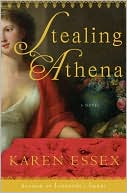 I’m not going to give this one a rating because to be honest it’s not something I would have read on my own and I did not enjoy it much. It was assigned reading for my Greek Thought & Literature class (as was the Iliad, but I enjoyed that) and we were only assigned certain chapters within it, so I didn’t read the whole thing.
I’m not going to give this one a rating because to be honest it’s not something I would have read on my own and I did not enjoy it much. It was assigned reading for my Greek Thought & Literature class (as was the Iliad, but I enjoyed that) and we were only assigned certain chapters within it, so I didn’t read the whole thing.
The basic gist is that Herodotus gives us a detailed background on events leading up to the many wars between the Persians and the Greeks. The famous story depicted by the recent movie 300 is also in here (the battle of Thermopylae), as well as a couple of other big battle: the battle of Marathon, the battle of Salamis, etc. etc.
Herodotus also likes to go off on a lot of tangents, and he tells us about how a singer named Arion took a ride on a dolphin, and there’s exhaustive lists on geography (or what the Greek world knew of geograph at that time) and other unrelated things.
However, in Book III Herodotus gives us an interesting debate between three Persian men on the merits and pitfalls of three forms of government: Democracy, Monarchy, and Oligarchy. My professor later said that most scholars agree this did not actually happen, and Herodotus made this section up, or heard about it from someone else who made it up. Anyway, monarchy wins out and Darius becomes king of Persia, followed by Xerxes (the bad guy in 300).
All in all, not exactly my favorite read…


